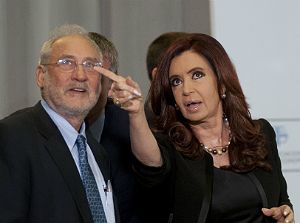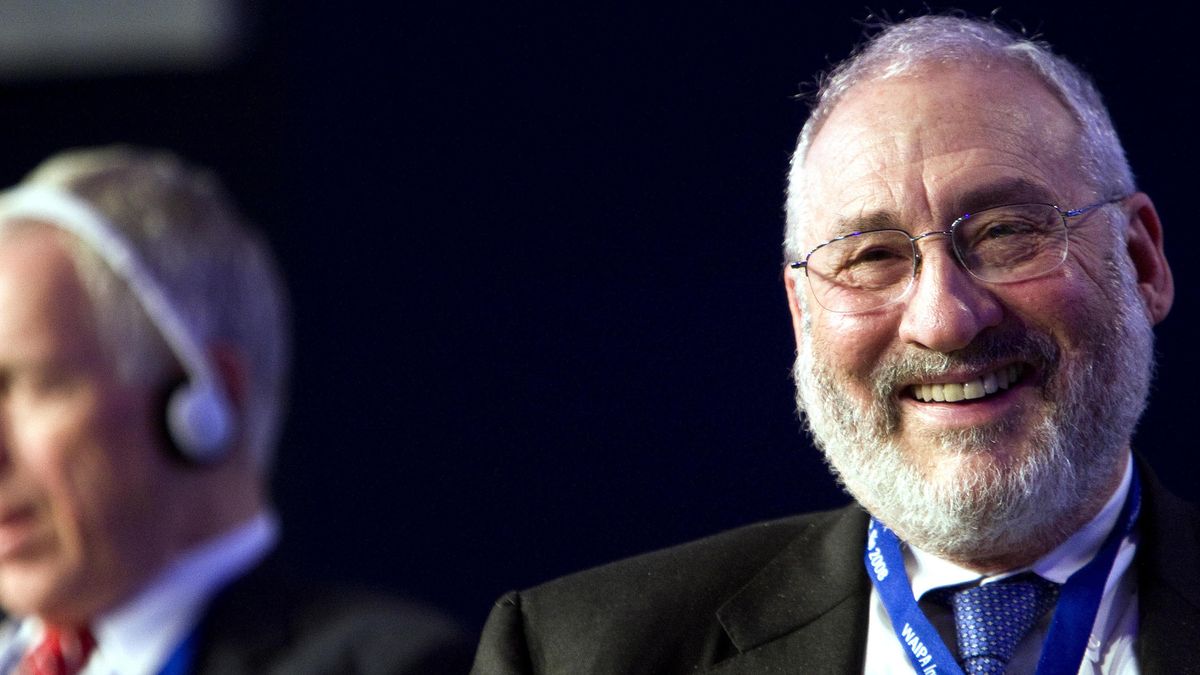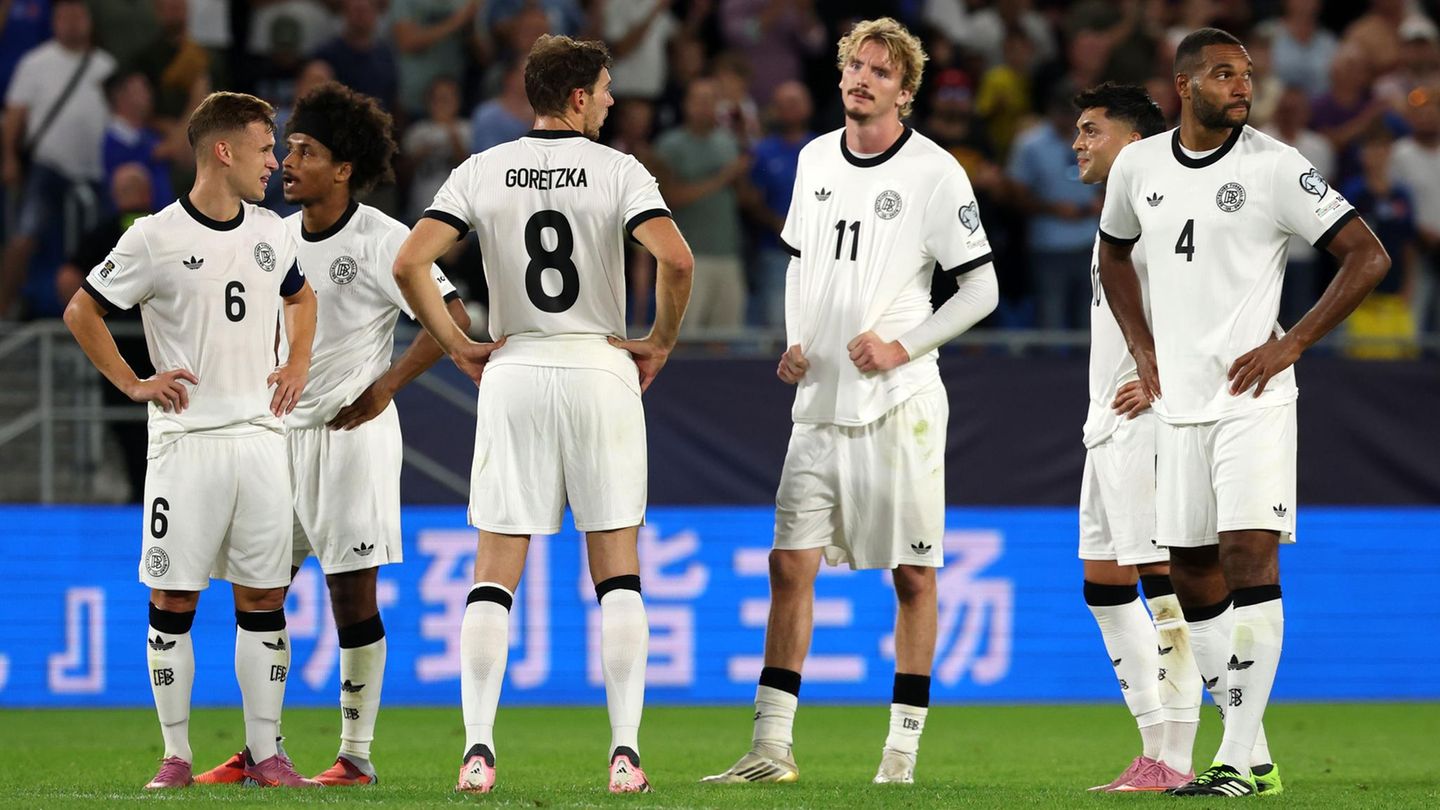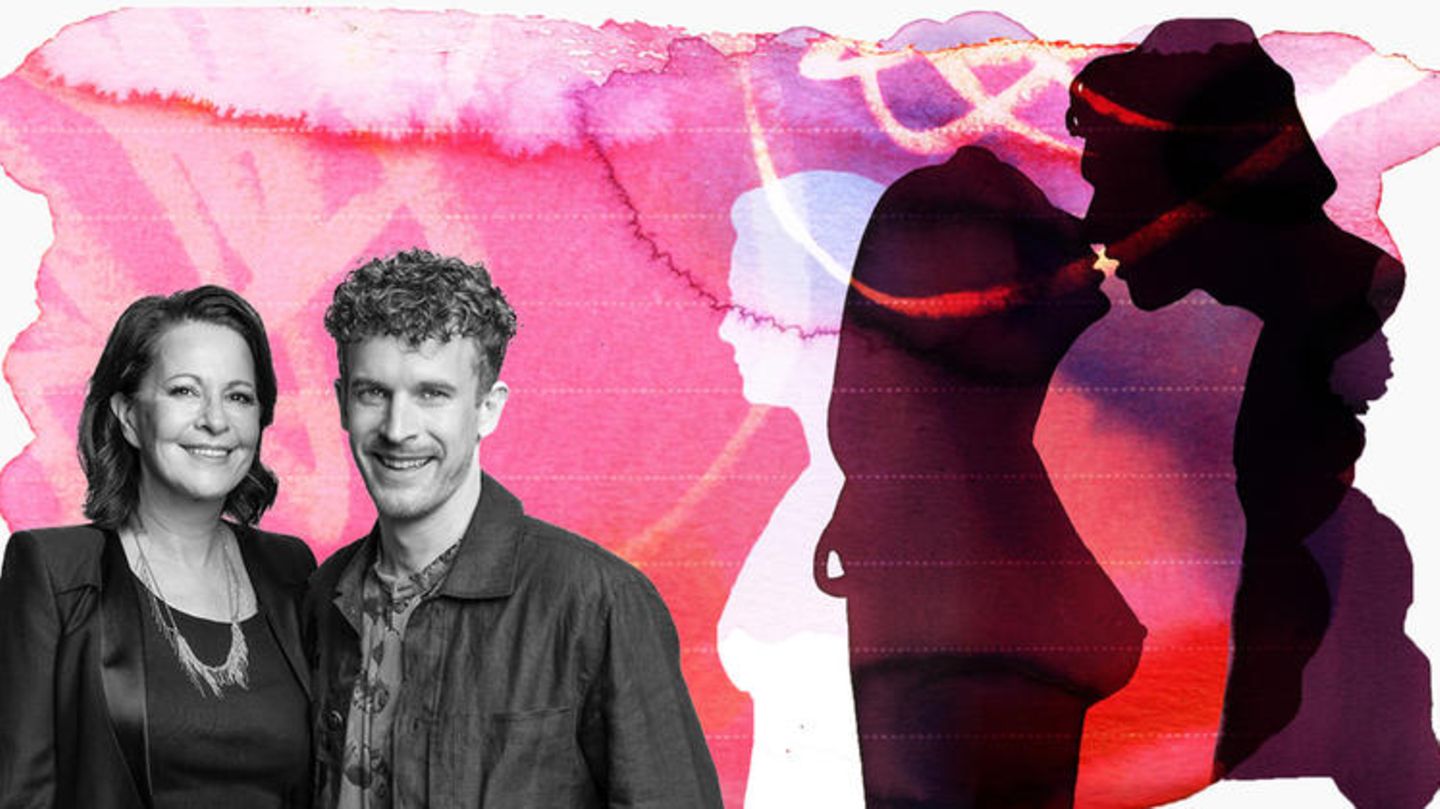An unfortunate event. Juan Carlos de Pablo said that Nobel laureate Joseph Stiglitz says “lame” every time he praises the economy and Martin Guzman. On Stiglitz he doubled the bet: “It’s a cheek that is in the party”. “The only ones who give him ball are the Argentines and the Pope” (indirectly he treated the Argentines as “assholes”-as he has accustomed us-and the Pope). Grave for a Roman Catholic, denominational college graduate.
ANECDOTES OF SOME BOYS WHO WANTED TO CULTIVATE THEMSELVES
When we were just received we went to a conference at the Professional Council, to hear a speaker. A kind of “grandfather of Melconian” of that time – forerunner of pure laughter and sarcasm who said: “in the English invasions we should have thrown flowers at the English, instead of oil and boiling water”. The following year in Córdoba-IAEF Congress-it occurred to me to ask Federico Zorraquin who in his presentation favored strongly positive interest rates. He was the financial manager of Saccol, an 80-year-old industry that was languishing after 7 years of Martinez de Hoz, Lorenzo Sigaut (dad), Roberto Alemann, Dagnino Pastore and other illustrious ones who achieved: “zero growth”, “extravagant indebtedness”, “3-digit inflation”, absurd appreciation of the peso, then “endless devaluation”, destruction of the productive apparatus, salary and employment.
This businessman had bought another bank to add to his (“Comercial del Norte”) + the new “Spanish” -and was the official sponsor of the event. Don Federico was visibly upset with a young man from the crowd who asked him if the companies in his group had grown with “positive or negative real rates”…, he stammered an unconvincing but very quarrelsome answer. El Cavallo (unorthodox) in Córdoba played at home and unexpectedly jumped out to defend me, arguing in favor of lower rates, industry, etc. He then invited me to leave the room. “Loyalty of the paddock”, I went with Cavallo-because he supported me in an audience that was very hostile to me-. Leaving the premises, I went through the bathroom and in the urinal next to me was John Charles DePaul, who looked at me from up there-he’s very tall-and told me: “Never go to need work and have to ask Zorraquin”. I didn’t answer anything, because he was a great and famous man, a star economist in the media during the civic-military dictatorship. Neustadt and Grondona called him every morning, and we all listened to him in the car on the way to the office.
Evidently he remains an influential operator, in an ideological environment of extreme intellectual poverty. He wrote in the newspaper La Nación (currently owned by Macri, according to Emerald Miter), directed a newspaper of a textile businessman turned airport owner and sponsor of these elaborate economists. He was a biographer of his neighbor from Libertador and Tagle-the second Cavallo, from Convertibility-, in the book “Passion to Create”. He belongs to the small group of rich economists, without blushing he expresses his anti-national ideology, always useful “to sell reports and conferences in Argentina”.
Fantino praised him a lot in the program where he shared a table with D’Alessio and other services, or communicators’ services, from which he knew how to get off in time. His figure has always aroused the sympathy of the neocolonialist remnant and the corporations that he has taken great care to care for. His synthesis is the expressions on Stiglitz and Guzmán, he is a life member of the IMF club, endowed with fees from corporations, liberal in economics, not so much in politics (as Alberdi said about the Constitution), defender of the countryside, multinationals and, as I said, supporter of the influence of the beginning of the last century, translator and domestic assistant of Western culture, not so Christian (I say for the Pope).
KRISTALINA GEORGEVA.jpg
The head of the IMF, Kristalina Georgieva, at the “New Forms of Solidarity” seminar, together with the Nobel laureate in Economics, Joseph Stiglitz, and the Minister of Finance, Martín Guzmán.
Photo: Telam
It was, and is, the bravery of the teams against Argentina. His sayings look innocent, but maybe they are instinctive. Frequently mistreating the popular, the national, these positions led him to eternalize his presence and influence over banks and companies. With the skills of a media comedian-although he went through the public sector-then he has been a tango commentator, because he never dared to take the bandoneon on his knees. He continues to minimize those he cannot equal -we saw him do it with Aldo Ferrer during the dictatorship-, as he would not do with the young Martin Guzmán or Joseph Stiglitz. Demolishing all sovereign ideal, disdaining our customs, cultural, social, historical and political heritage. It usually struck me as curious that academic economists with a Spanish surname from the guide: Rodríguez, Fernández, López (Murphy), De Pablo… boasted of being Anglos. But we learned something from Jauretche when he spoke of sepoys, or “malinchismo”, an attitude of those Mexicans who prefer the foreign over the national, comes from Malinche who was the daughter of a Mexican cacique given to Cortés.
It will be said in favor of De Pablo that although he embodies the neoliberal anthropological model, he has conceived from his beginnings a wild discursive style, he never has a power point, nor has he ever worn a tie. It separates him from the rest, a certain respectability of those who try to emancipate themselves from their origins. It was always the most entertaining of the mode audiences: “Doña Rosa” and it is the forerunner of a school of scientific dissemination that-although biased-must be valued. Although he doesn’t take much pains, he is a far more prepared professional than most of the new establishment buffoons. By reappearing, perhaps he intends to fill the void left by the luminaries threatened by the discredit of their predictions. They have become new technopols, politically reactionary and socially regressive. The list of technopols, professors and graduates of the university that trained de Pablo is endless. Cambiemos has had the luxury of technically, ethically and morally discrediting such a noble house of higher learning.
What achievements does Stiglitz have?
Stiglitz is a Nobel laureate, writes on the Project Syndicate website, and was born in Gary, Indiana (where much poorer people lived than in Villa Luro), intelligent with a class conscience. Doubly intelligent and noble. He says that the family instilled in him since he was a child the value of doing the right thing. His mother was a white teacher in a public school with a majority of African-American children. His father spoke to him of the moral and legal importance of paying the social charges of domestic service: Stiglitz says that this saved him many problems in his confirmation before the Senate to preside over the CAE.
To begin with, in 1979 he received a medal John Bates Clark, award given to the most influential economist under the age of 40 in the United States. The list of the most influential articles in economics has 6 works by Stiglitz, an honor he shares with only two people: Robert “Bob” Barro and Eugene Fame. To begin with, Stiglitz is one of the most influential economists in the world, considered “of the new Keynesian economics”. His contributions made it possible to improve the understanding of the origins of unemployment, through the efficiency wage, or the Shapiro-Stiglitz model. In 2001 he was awarded the Bank of Sweden Prize in Economic Sciences in Memory of Alfred Nobel, commonly known as the Nobel Prize in Economics.
Stiglitz’s most famous research is on screening, a technique used by one economic agent to extract the private information of another. This important contribution to the theory of asymmetric information earned him a Nobel Prize, with George Akerlof y Michael Spence. Stiglitz was one of the creators of the theory of markets with asymmetric information, in which two or more economic agents involved in transactions can hold qualitatively or quantitatively superior information in relation to others, generating market failures. He holds a BA from Amherst College and a Ph.D. from MIT. From 1965 to 1966 he studied at the University of Chicago where he conducted research under the direction of Hirofumi Uzawa. From 1969 to 1970, he was a Fulbright Research Fellow at the University of Cambridge. He was a professor at renowned universities, including Oxford, Princeton, Yale, Harvard, Columbia and Stanford, and was named one of the most influential people in the world by the magazine Time in 2011.
President Cristina de Kirchner and Nobel laureate in Economics Joseph Stiglitz.

President Cristina de Kirchner and Nobel laureate in Economics Joseph Stiglitz.
His studies focus on public finance, growth, income distribution, market theory, and the efficiencies of capitalist economies. With Bruce Greenwald, he created the Information Economy, an interdisciplinary field between economics, information science and communication that treats information as a production good necessary for the activities of the post-industrial capitalist system. He is a pioneer in the concepts of “moral hazard” or moral hazard and adverse selection, used by political theorists and analysts around the world.
His work helped explain contexts in which markets do not work and how selective government intervention can help improve their performance. Critical questioner of what he calls “ideological bases” that govern most of the world’s economic decisions.
He is currently a professor at Columbia University in New York. He is also one of the coordinators of the Committee on Global Thought, co-chair of the Initiative for Policy Dialogue, a project he helped found, and president of the International Economic Association.
Stiglitz participated in political positions, in the administration of the president Bill Clinton as president of the Council of Economic Advisors (1995-1997). At the World Bank, as First Vice President and Chief Economist (1997 – 2000). One of the lead authors at the Intergovernmental Panel on Climate Change (IPCC). He is a member of the Pontifical Academy of Social Sciences. wrote more than 40 books (best seller in many languages) and a hundred academic papers.
In the 1990s, when he devoted himself to policy formulation, first in the Council of Economic Advisors (CAE) of Bill Clinton and as Chief Economist of the World Bank, he took on lawyers, investment banks and economic powers, to defend the cause of the ordinary citizen. That is what bothers the grandparents and grandchildren of the 1977 financial reform, educated individualists, isolated consumers, interested in money and culturally impoverished, who prefer comedians dedicated to the economy over brilliant intellectuals.
Professor of Postgraduate UBA and Masters in private universities. Master in International Economic Policy, Doctor in Political Science, author of 6 books. @PabloTigani
Source From: Ambito




